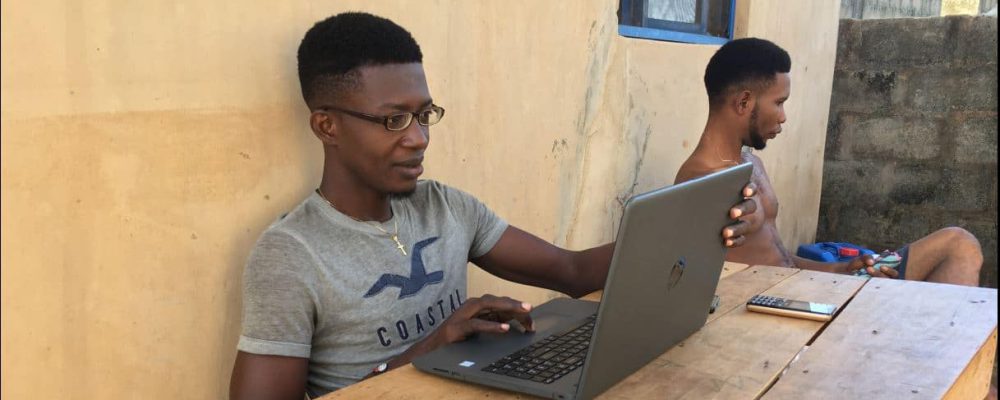
When the world rebuilds after the COVID-19 crisis, Africa will have a unique challenge to face: bringing its overwhelmingly young workforce into decent, productive, and secure jobs. Africa has the world’s youngest population, a fact that some hope will mean fewer deaths and serious cases, despite the region’s health care systems being extremely underfunded.
Even before the global pandemic, many young Africans struggled to find productive employment, often finding themselves underemployed or perpetually engaged in low-paid, low-productivity, precarious self-employment. This trend, paired with a persistent, although, we argue, unfounded, worry among political leaders and the international community that some frustrated young people may turn to violent crime, militant extremism, or protest, has fostered a plethora of youth employment initiatives. Most of these initiatives focus on delivering post-school vocational training or entrepreneurship coaching to young people—and their impacts on youth earnings or the overall economy have not been particularly encouraging.
Not a ‘youth unemployment’ crisis, but a ‘missing jobs’ crisis
In our recent Brookings paper, we argue that such efforts are bound to fail because Africa’s “youth unemployment” crisis is actually a “missing jobs” crisis. Indeed, many people in Africa do not so much lack skills or education as the opportunity to apply their knowledge and skills in ways that drive their countries forward economically. We argue that, rather than this being a problem specific to young people, in fact, people of all ages face a staggering shortage of formal, productive jobs—the type that could be considered “good” or ”decent” work.
The dominant focus on bringing about youth employment through training is a case of a false problem diagnosis leading to the wrong interventions, which are not only ineffective in the short run but also waste urgently needed resources. Churning out better qualified and more motivated job seekers has not created more jobs—and instead has drawn funding and attention away from strategies that could create more jobs. The problem needs to be recognized for what it really is: a crisis of missing jobs.
“Acknowledging that jobs for young Africans are not just one more training session, microloan, or startup incubator away—that supply-side interventions alone do not foster broad-based job creation—opens up space to think about a new generation of programs.”
This lack of jobs leads to precarity—in three dimensions—for people of all ages. The first dimension is income risk, because most Africans—whether young or old, working in the household farming or business sector or the emerging “gig” economy—are forced to carry all the risks associated with variable weather, crop pests, sickness, price fluctuations, market disruptions, theft, and so on. The second dimension is instability, as many activities on family farms or in informal businesses are temporary and/or seasonal, which leads to perennial underemployment and low income for those stuck in these sectors. The third dimension is a lack of social protection, because most Africans work under conditions in which labor protections and laws do not apply, and few countries have a meaningful safety net.
Priorities need to change
After the COVID-19 crisis, more than ever, priorities will have to change if decent work is to be available for all those looking for it. Policies and programs must focus on the structural conditions of African economies and aim for comprehensive transformation. Even if such efforts may take years to pay off, the prize is worth it.
More specifically, policymakers must rethink spending money on programs that only or specifically target youth, but, rather, address the constraints to the creation of quality jobs for workers of any age. Furthermore, governments and the multilaterals should commit to spending money on building up social protection systems that shield people from the worst effects of precarity and enable them to fulfill their potential. The right type of social protection fosters dynamism and transformation rather than hindering it.
African governments, for the most part, already know the importance of economic transformation. At the same time, we think foreign development partners should rethink their approaches. Itty-bitty youth employment projects, which deliver training to a few hundred or thousand young people at a time and can carry a single donor’s logo, cost a lot of money. In fact, per pupil, training interventions such as public technical and vocational training cost much more than investments in better secondary schooling for everyone would. And they achieve far too little.
Acknowledging that jobs for young Africans are not just one more training session, microloan, or startup incubator away—that supply-side interventions alone do not foster broad-based job creation—opens up space to think about a new generation of programs. Although policy and investment priorities are context specific, in many cases these will include industrial policy to increase labor-intensive manufacturing and services, urgently needed infrastructure investments, better regional integration, and social protection mechanisms like cash transfers or basic incomes. These policies will help in the short term to mitigate the worst effects of the current crisis and in the longer term to generate inclusive growth and development.
For more on job creation in Africa, see John Page’s commentary examining constraints to growth in industries without smokestacks—specific high-productivity services subsectors with the potential to absorb large numbers of less-skilled labor.





